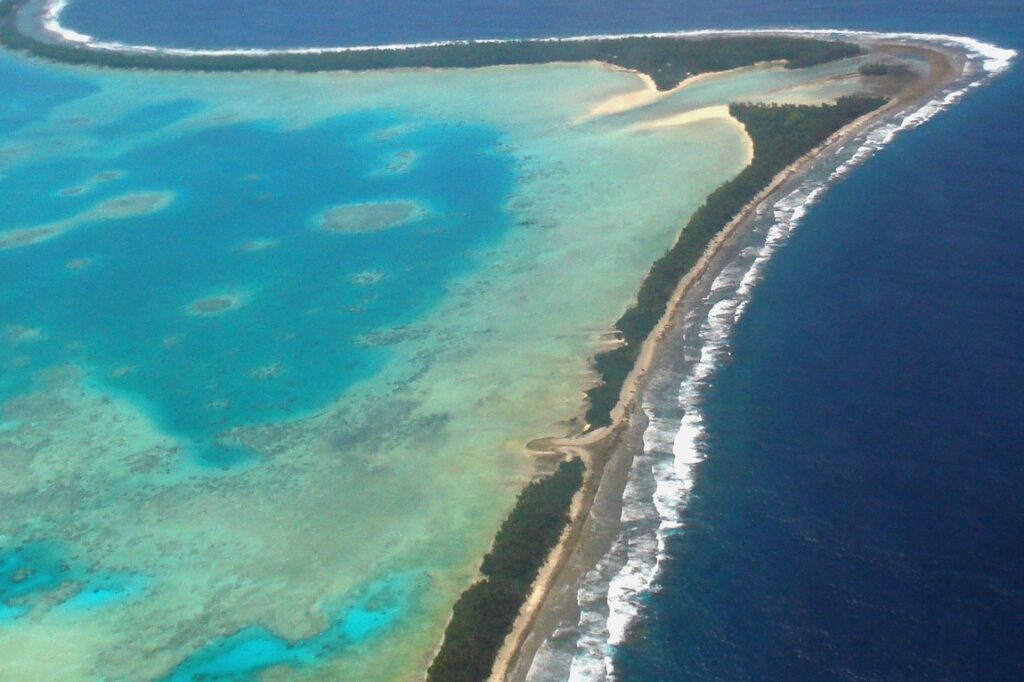Climate change and pacific islands
Downloads
Tasks
- Describe the main problems that climate change is causing for island states such as Tuvalu and Kiribati.
- Explain the social, cultural and economic impacts on the inhabitants of these island states.
- Explain why the situation of the island states is an example of climate justice issues.
- Discuss who is responsible for supporting these island states and justify your opinion.

Tuvalu is an island state in the South Pacific and, like the Fiji Islands, Kiribati, New Zealand and Australia, is part of the continent of Oceania. The capital and largest island of the state is Funafuti. The name Tuvalu means „eight islands“, as only eight islands were inhabited when the state was founded in 1978. The current land area of Tuvalu comprises nine atolls and around 1,000 small islands and corresponds to an area of 26 km². This makes Tuvalu the fourth smallest state in the world. The widest point of the country measures only about 400 meters, while the average sea level is about two meters above the land.
The islands of Tuvalu have been inhabited by humans for at least 2,000 years, with the current population standing at around 10,400. The population of Tuvalu is facing a serious threat from climate change and the associated rise in sea levels. This results in flooding, loss of land and a shortage of drinking water supplies. Although Tuvalu has contributed to global warming to a lesser extent than other countries, the effects of climate change are devastating for the country.
The climate impacts require people to reflect on their future. On the Fiji Islands, entire settlements have already disappeared into the ocean, making it necessary to relocate the affected population to higher regions of the island state. These initial relocations due to rising sea levels have saved the lives of those affected, but they face considerable challenges as they have to rebuild their livelihoods, including the creation of new fish ponds, agricultural land and coastal protection measures. The costs of these resettlements are borne by the residents and the Fijian government, which many feel is unfair as they have contributed little to nothing to climate change.
The island state of Kiribati in the South Pacific is also unable to relocate all of its inhabitants to higher ground. The Kiribati government therefore acquired an area of 2,428 hectares on Fiji’s second largest island, Vanua Levu, for 16 million Fiji dollars (the equivalent of around seven million euros) back in 2016. The plan envisages that people from Kiribati will live on this land in the future. The land is home to the village of Naviavia with 261 inhabitants who fear displacement. Following the visits and discussions, it was agreed that the village would remain and the land would be developed in the interests of the villagers.
Anote Tong, the former president of Kiribati, was already committed to „migration with dignity“ for his compatriots before the climate summit in Paris in 2015. The inhabitants of Kiribati do not want to be labelled as climate refugees. Resettlement to a landlocked country in a highly developed industrialised nation such as Australia, which has no access to the sea, would be particularly difficult for those affected, as their lives are largely characterised by fishing. The people of Tuvalu, on the other hand, do not want to leave their homeland. For them, resettlement is not an acceptable solution.
